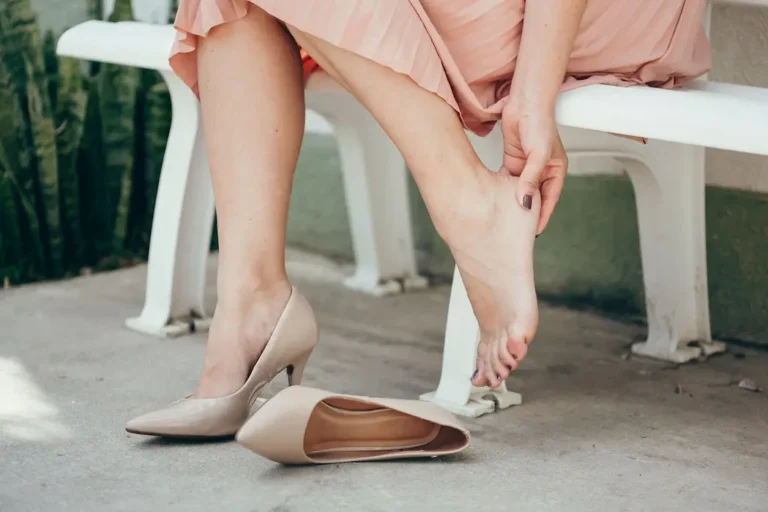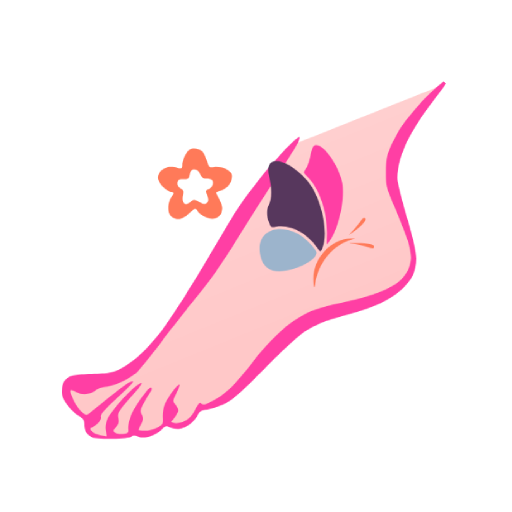We’ve all experienced the maddening sensation of an itchy foot. But have you ever noticed that your feet tend to itch more intensely at night? It’s not your imagination; there’s a reason behind it. In this article, we’ll explore the causes of nighttime foot itching and how to find relief.
Understanding Foot Itching
Before we delve into the mysteries of nighttime foot itching, let’s briefly understand what causes this annoying sensation. Itching is often the result of irritation or inflammation in the skin.
It can be triggered by various factors, including dryness, allergies, infections, insect bites, and underlying medical conditions.
Common Causes of Foot Itching
Dry Skin
Dry skin is one of the most common culprits of foot itching. When the skin on your feet lacks moisture, it can become flaky, cracked, and itchy.
Fungal Infections
Fungal infections, such as athlete’s foot, can thrive in warm, moist environments, including your shoes. These infections often lead to intense itching, especially at night.
Allergies
Allergies to certain fabrics, detergents, or skincare products can cause itching, and this irritation may intensify while you’re at rest.

Insect Bites
Bites from pesky insects, like bedbugs or mites, can lead to itchy feet, and you may notice it more when you’re lying down in bed.
Medical Conditions
Certain medical conditions, such as diabetes or neuropathy, can cause persistent itching in the feet, which might worsen at night.
Why Do Feet Itch More at Night?
Now that we’ve covered the common causes of foot itching let’s explore why this sensation tends to peak during the nighttime. At night, our body’s circadian rhythms shift. Blood flow to the skin increases, and the skin’s temperature rises slightly. These changes can make the itch receptors in our skin more sensitive, amplifying the perception of itching. Additionally, our minds are less distracted by daytime activities, making us more aware of bodily sensations like itching.
Home Remedies for Nighttime Foot Itching
If you’re tired of losing sleep due to itchy feet, here are some practical remedies to try:

Moisturize Regularly
Applying a high-quality moisturizer to your feet before bedtime can help combat dryness, reducing itching. Explore different types of moisturizers and how to choose the right one for your skin.
Use Hypoallergenic Bedding
Investing in hypoallergenic bedding, including sheets and pillowcases, can minimize exposure to potential allergens that trigger itching. Learn how to create an allergen-free sleep environment.
Keep Feet Cool
Opt for breathable footwear and consider wearing moisture-wicking socks to maintain a comfortable foot temperature. Discover how the right choice of socks and shoes can make a significant difference.
Why Do the Bottom of My Feet Itch at Night?😮https://t.co/AXLIVcC9L1#feetcare #feetlover😍 #feet #feettreatments #girlsfeet #cutefeet pic.twitter.com/6nyPvUAKNL
— Sellfeetpics (@sellfeetpicsco) September 20, 2023
Practice Good Hygiene
Washing your feet daily with a mild soap and drying them thoroughly is crucial. Pay special attention to the spaces between your toes where fungal infections often thrive. Learn a step-by-step foot hygiene routine.
When to Seek Medical Attention
While many cases of nighttime foot itching can be alleviated with home remedies, it’s crucial to recognize when to consult a healthcare professional. If your symptoms persist, worsen, or are accompanied by other concerning signs, such as open sores or swelling, seek medical attention promptly.

Preventing Nighttime Foot Itching
- Prevention is often the best cure. To minimize the likelihood of nighttime foot itching:
- Keep your feet clean and dry.
- Choose moisture-wicking socks and breathable footwear.
- Make sure to switch your shoes periodically to allow for proper ventilation.
- Avoid sharing shoes or socks with others.
- Address underlying medical conditions that may contribute to foot itching.
Conclusion
Nighttime foot itching can be a bothersome issue, but it’s typically manageable with proper care and attention. By understanding the causes, implementing preventive measures, and using effective home remedies, you can bid farewell to those restless nights.
FAQs
Can stress cause nighttime foot itching?
While stress itself may not directly cause foot itching, it can exacerbate underlying conditions that lead to itching, such as allergies or skin sensitivities.
How can I stop my feet from itching at night?
To stop your feet from itching at night, try applying a soothing moisturizer before bedtime and ensure your feet are clean and dry. Additionally, consider using hypoallergenic bedding to reduce potential allergens in your sleep environment.
Is it normal for feet to itch at night?
Yes, it’s relatively common for feet to itch at night due to increased sensitivity and decreased distractions during sleep.
Does itchy feet mean poor circulation?
Itchy feet can sometimes indicate poor circulation, but it’s not the only cause. It’s essential to consider other factors like dryness, allergies, or skin conditions. If you suspect poor circulation, consult a healthcare professional for evaluation.
Are there specific foods that can worsen foot itching at night?
Some individuals may be sensitive to certain foods that can trigger allergic reactions, potentially leading to foot itching. Recognizing and steering clear of these triggers can be beneficial.
Can over-the-counter creams relieve nighttime foot itching?
Yes, over-the-counter creams designed to soothe itching, like hydrocortisone creams, can provide temporary relief. However, if the itching persists, consult a healthcare professional.
Is there a link between diabetes and nighttime foot itching?
Yes, diabetes can lead to neuropathy, a condition that can cause itching and discomfort in the feet. Managing blood sugar levels is essential for diabetic foot health.
What should I do if my nighttime foot itching is accompanied by swelling and redness?
Swelling and redness can be signs of an underlying infection or allergic reaction. Seeking guidance from a healthcare provider is recommended for an accurate diagnosis and appropriate treatment.








